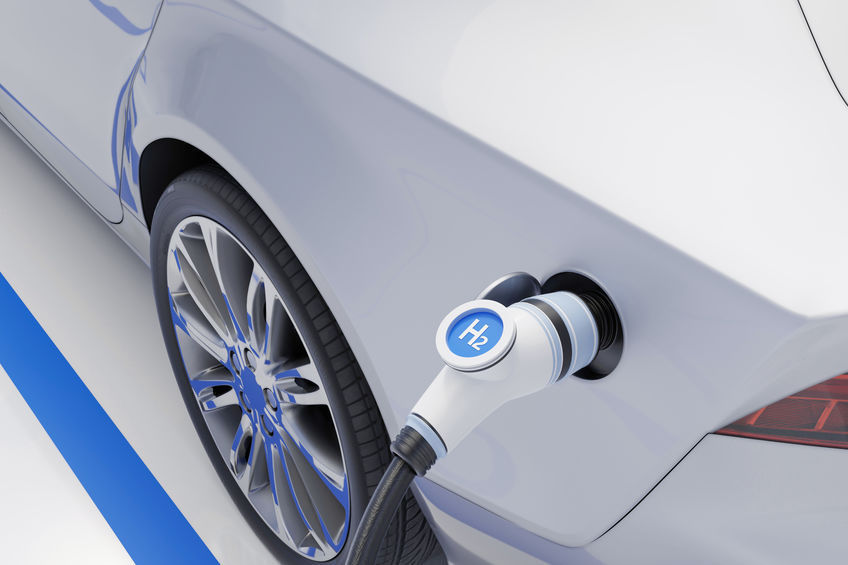 |
A visual concept image of a hydrogen fuel car charging station (123rf) |
South Korea’s focus on forging a complete hydrogen energy ecosystem in line with its climate pledge is presenting new investment opportunities, as the country is in dire need of a technological breakthrough to reduce the cost of green transition, a report by German investment bank Deutsche Bank showed Tuesday.
The country’s ambition to increase fiscal spending to nurture hydrogen-related research and development, combined with the legal and institutional framework in the making, will play a pivotal role in accelerating Korea’s push to cut its carbon emissions by 40 percent by 2030 -- a blueprint unveiled during the 2021 United Nations Climate Change Conference, or COP26, held in Glasgow, Scotland earlier in November.
“Korea has accelerated its race to net zero, despite potential costs and rising external headwinds, with its focus on hydrogen presenting an area of significant investment opportunities,” noted Juliana Lee, chief economist at Deutsche Bank Research.
This comes amid an estimate by the Bank of Korea that the cost of Korea‘s green transition may be as high as 0.25 percent to 0.32 percent of its gross domestic product per year through 2050.
But the cost of a green transition appears to be inevitable, given the cost of no action appears to be far more serious -- as high as 1.13 percent of Korea’s GDP by 2050 and 4.25 percent by 2100 -- according to Lee who cited Korea Environment Institute‘s report.
Against this backdrop, the question is how to cut the cost of green transition, raising a need for hydrogen technology development and commercialization.
“The cost of green transition may be reduced in the event of technological breakthrough, in either carbon capture or ’new‘ energy,” Lee noted. “There is a particular interest in developing a complete hydrogen energy ecosystem in South Korea.”
Narrowing the hydrogen technology gaps between Korea and foreign counterparts through the R&D spending is critical to creating a full-fledged hydrogen ecosystem by 2040. According to Lee, the United States and Europe are ahead of Korea in the area of storage, eco-friendly water electrolysis power generation, and hydro-powered ships, trains and drones.
The Korean government pledged in March to support Korean companies’ spending of a combined 43 trillion won ($36 billion) through 2030, soon after the Hydrogen Economy Law entered into force in February. This rivals the combined spending of $44 billion by France, Germany, Italy, Spain and Portugal, according to Deutsche Bank‘s estimate.
Moreover, Korea’s parliament is due to revise a law in order to develop institutional frameworks, including Clean Hydrogen Energy Portfolio Standards and a national clean hydrogen certification system, a hydrogen price reporting system and designation of hydrogen-specialized industrial complexes. It is also setting up a Hydrogen Industry Life-cycle Safety Support Center, due to open in December.
By Son Ji-hyoung (
consnow@heraldcorp.com)

![[Green Paradox] Moon’s hydrogen vision is 'color-blind'](http://res.heraldm.com/phpwas/restmb_idxmake.php?idx=605&simg=/content/image/2021/10/31/20211031000151_0.jpg)

![[Law Talk] Hydrogen emerging as feasible solution in Korea’s path to carbon neutrality](http://res.heraldm.com/phpwas/restmb_idxmake.php?idx=605&simg=/content/image/2021/10/31/20211031000118_0.jpg)
![[News Focus] World’s first ‘hydrogen law’ takes effect. What's in it?](http://res.heraldm.com/phpwas/restmb_idxmake.php?idx=605&simg=/content/image/2021/02/08/20210208000721_0.jpg)







